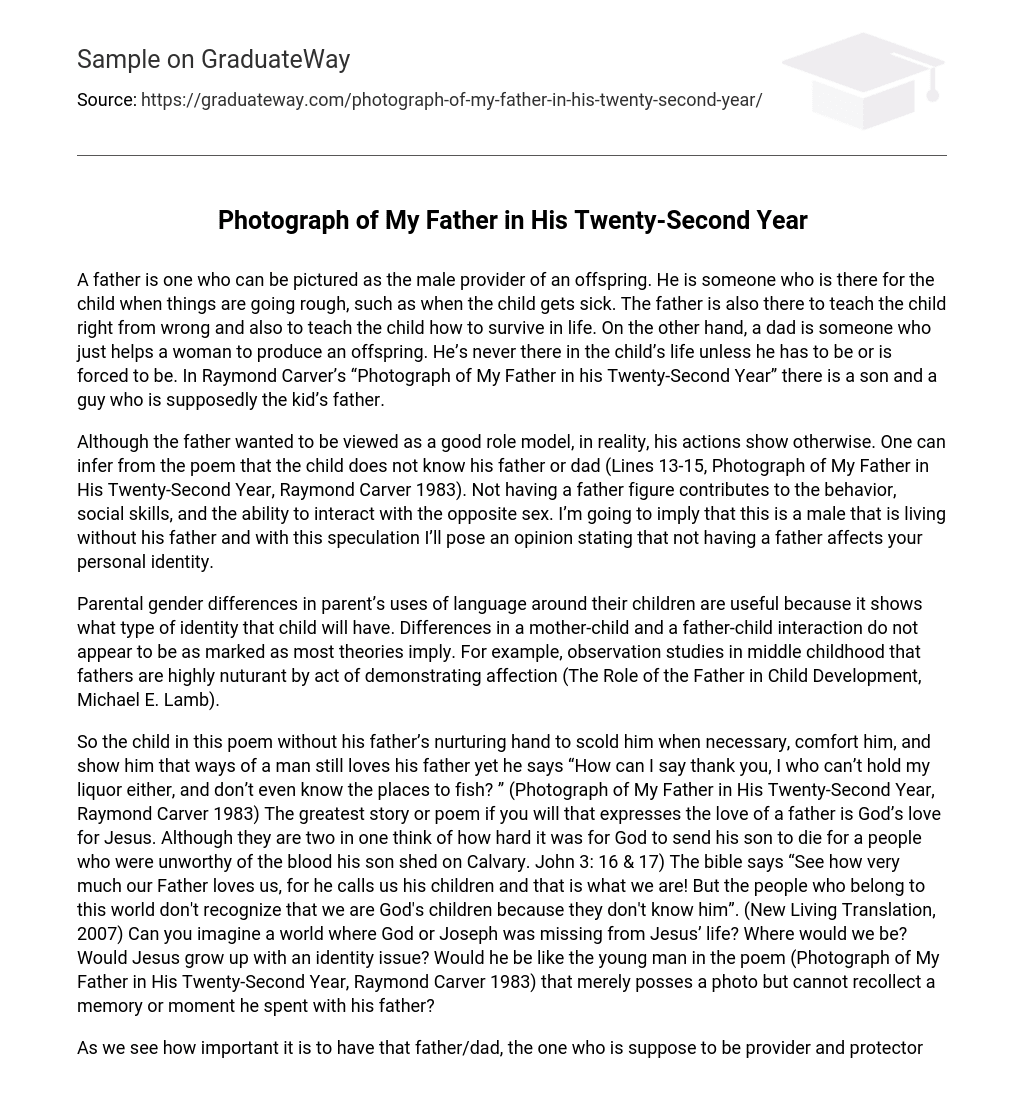A father is one who can be pictured as the male provider of an offspring. He is someone who is there for the child when things are going rough, such as when the child gets sick. The father is also there to teach the child right from wrong and also to teach the child how to survive in life. On the other hand, a dad is someone who just helps a woman to produce an offspring. He’s never there in the child’s life unless he has to be or is forced to be. In Raymond Carver’s “Photograph of My Father in his Twenty-Second Year” there is a son and a guy who is supposedly the kid’s father.
Although the father wanted to be viewed as a good role model, in reality, his actions show otherwise. One can infer from the poem that the child does not know his father or dad (Lines 13-15, Photograph of My Father in His Twenty-Second Year, Raymond Carver 1983). Not having a father figure contributes to the behavior, social skills, and the ability to interact with the opposite sex. I’m going to imply that this is a male that is living without his father and with this speculation I’ll pose an opinion stating that not having a father affects your personal identity.
Parental gender differences in parent’s uses of language around their children are useful because it shows what type of identity that child will have. Differences in a mother-child and a father-child interaction do not appear to be as marked as most theories imply. For example, observation studies in middle childhood that fathers are highly nuturant by act of demonstrating affection (The Role of the Father in Child Development, Michael E. Lamb).
So the child in this poem without his father’s nurturing hand to scold him when necessary, comfort him, and show him that ways of a man still loves his father yet he says “How can I say thank you, I who can’t hold my liquor either, and don’t even know the places to fish? ” (Photograph of My Father in His Twenty-Second Year, Raymond Carver 1983) The greatest story or poem if you will that expresses the love of a father is God’s love for Jesus. Although they are two in one think of how hard it was for God to send his son to die for a people who were unworthy of the blood his son shed on Calvary. John 3: 16 & 17) The bible says “See how very much our Father loves us, for he calls us his children and that is what we are! But the people who belong to this world don’t recognize that we are God’s children because they don’t know him”. (New Living Translation, 2007) Can you imagine a world where God or Joseph was missing from Jesus’ life? Where would we be? Would Jesus grow up with an identity issue? Would he be like the young man in the poem (Photograph of My Father in His Twenty-Second Year, Raymond Carver 1983) that merely posses a photo but cannot recollect a memory or moment he spent with his father?
As we see how important it is to have that father/dad, the one who is suppose to be provider and protector in our lives, affected this child can you say that having a father or not having a father didn’t or still doesn’t affect you? Works Cited Page Carver, Raymond (1938-1988). Photograph of My Father in His Twenty-Second Year. (1983) Lamb, Michael E. The Role of the Father in Child Development. New York: Wiley (2010) The Holy Bible





